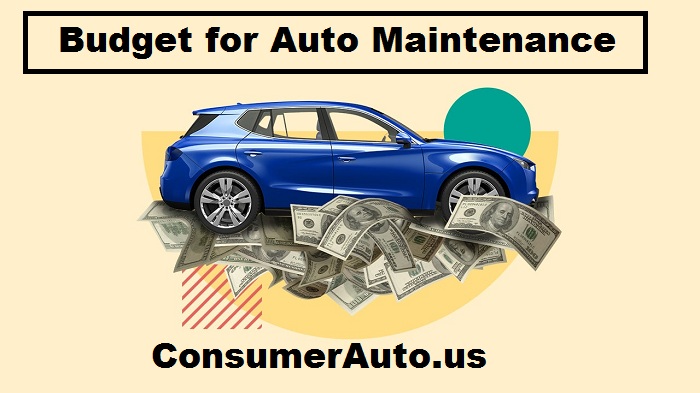In today’s fast-paced world, owning a vehicle is essential for many individuals and families. However, along with the convenience of having your own mode of transportation comes the responsibility of maintaining it. Budgeting for auto maintenance is a crucial aspect of ensuring your vehicle’s longevity and your financial stability. At [Your Company Name], we understand the importance of expertly managing your auto maintenance budget, and in this comprehensive guide, we’ll walk you through the key strategies and considerations to help you effectively plan for your vehicle’s upkeep.
The Importance of Budgeting for Auto Maintenance
Effective budgeting for auto maintenance goes beyond merely setting aside a few dollars here and there. It’s about understanding the various factors that influence maintenance costs and creating a well-structured financial plan to address routine services and unexpected repairs.
Factors Affecting Auto Maintenance Costs
Vehicle Type and Model
When it comes to auto maintenance expenses, the type and model of your vehicle play a significant role. Luxury cars often come with higher maintenance costs due to their intricate components, while economy cars might have lower overall expenses. Hybrid vehicles, with their advanced technology, can fall somewhere in between.
Age and Mileage of the Vehicle
An older vehicle with higher mileage generally requires more frequent and potentially costlier maintenance. Components wear out over time, and certain parts may need replacement sooner than in a newer vehicle with lower mileage.
Regular Maintenance vs. Repairs
Differentiating Routine Maintenance from Unexpected Repairs
Routine maintenance involves scheduled services that help prevent major issues. These include oil changes, filter replacements, fluid top-ups, tire rotations, alignments, and brake inspections. Unexpected repairs, on the other hand, encompass unforeseen breakdowns and malfunctions.
Allocating Funds for Scheduled Services and Unexpected Issues
To effectively manage your budget, allocate a portion of your monthly income to routine maintenance and a separate emergency fund for unexpected repairs. By striking this balance, you ensure your vehicle receives the care it needs without putting strain on your finances.
Calculating Monthly Auto Maintenance Budget
Establishing a Baseline Budget
Research average maintenance costs for your specific vehicle type and create a spreadsheet to track monthly expenses. This data-driven approach will provide clarity on your budgeting needs and help you make informed decisions.
Routine Maintenance Categories and Costs
Regular maintenance tasks involve various categories, each with its associated costs. These can include:
- Oil changes, filter replacements, and fluid top-ups
- Tire rotations, alignments, and brake inspections
It’s essential to research the cost range for each category, allowing you to allocate funds accurately.
Emergency Repair Fund Allocation
Importance of Setting Aside Funds for Unexpected Breakdowns
The road can be unpredictable, and breakdowns can happen when you least expect them. By establishing an emergency repair fund, you create a safety net that shields you from sudden financial strain.
Determining an Appropriate Percentage of Your Budget for Emergencies
While the ideal percentage may vary based on your circumstances, experts recommend allocating around 10-15% of your monthly budget to the emergency repair fund.
DIY vs. Professional Services
Pros and Cons of DIY Maintenance
While DIY repairs can save money, they come with potential risks, especially if you lack experience. Simple tasks like changing wiper blades or air filters can be DIY-friendly, but complex repairs are best left to professionals.
Hiring Professional Mechanics
When selecting a mechanic, consider factors such as their expertise, reputation, and labor costs. Comparing prices across different service centers ensures you receive quality service at a reasonable rate.
Extending Vehicle Lifespan and Reducing Costs
Importance of Regular Maintenance
Consistent routine maintenance is key to extending your vehicle’s lifespan. By adhering to manufacturer recommendations, you avoid costly repairs that result from neglect.
Driving Habits and Maintenance Impact
Adopting fuel-efficient and maintenance-friendly driving habits can significantly reduce wear and tear on your vehicle. Avoid aggressive driving and follow recommended speed limits to preserve your car’s components.
Budgeting Strategies for Auto Maintenance
Percentage-Based Budgeting
Allocate a fixed percentage of your monthly income to auto maintenance. Adjust the percentage based on your vehicle’s age and condition. This approach ensures you’re consistently saving for upkeep.
Monthly Maintenance Fund
Create a dedicated savings account specifically for auto-related expenses. Contribute a set amount each month to gradually build a fund that covers routine maintenance and potential repairs.
Planning for Seasonal Maintenance
Seasonal Maintenance Checklist
Different weather conditions require specific preparations. Budget for tasks like coolant changes and battery checks before the onset of extreme temperatures.
Addressing Wear and Tear
Identify signs of wear early on and address them promptly. Small issues can escalate into major problems if left unchecked, leading to higher repair costs.
Frequently Asked Questions (FAQs)
What Is the Average Monthly Cost of Auto Maintenance?
Auto maintenance costs vary based on factors like vehicle type, age, and driving habits. On average, budgeting around $75 to $150 per month for routine maintenance and emergencies is a reasonable estimate.
Is Routine Maintenance Cheaper Than Major Repairs?
Yes, investing in routine maintenance is significantly cheaper than dealing with major repairs resulting from neglect.
How Do I Find Reliable Mechanics in My Area?
Research local mechanics, read reviews, and ask for recommendations from friends or family. Look for certifications and affiliations with reputable automotive associations.
Can I Save Money by Learning to Do Basic Maintenance Myself?
While some basic tasks can save you money, complex repairs are better left to professionals to avoid causing further damage.
Should I Consider an Extended Warranty for Additional Coverage?
Extended warranties can provide additional coverage for certain repairs, but carefully review the terms and costs before making a decision.
How Can I Budget for Unexpected Breakdowns and Emergencies?
Allocate a portion of your budget to an emergency repair fund, ideally around 10-15% of your monthly income.
Conclusion
In conclusion, effective budgeting for auto maintenance is a strategic process that involves understanding your vehicle’s needs, allocating funds accordingly, and adopting responsible driving habits. By following the comprehensive strategies outlined in this guide, you can ensure your vehicle’s longevity, minimize unexpected repair costs, and maintain your financial stability. , we’re committed to providing you with the tools and insights needed to make informed decisions about your auto maintenance budget. Take proactive steps today to secure a smooth and worry-free driving experience for years to come.
Remember, the road to financial and vehicular success starts with a well-crafted maintenance budget. Drive smart, budget smarter, and enjoy the journey ahead!





